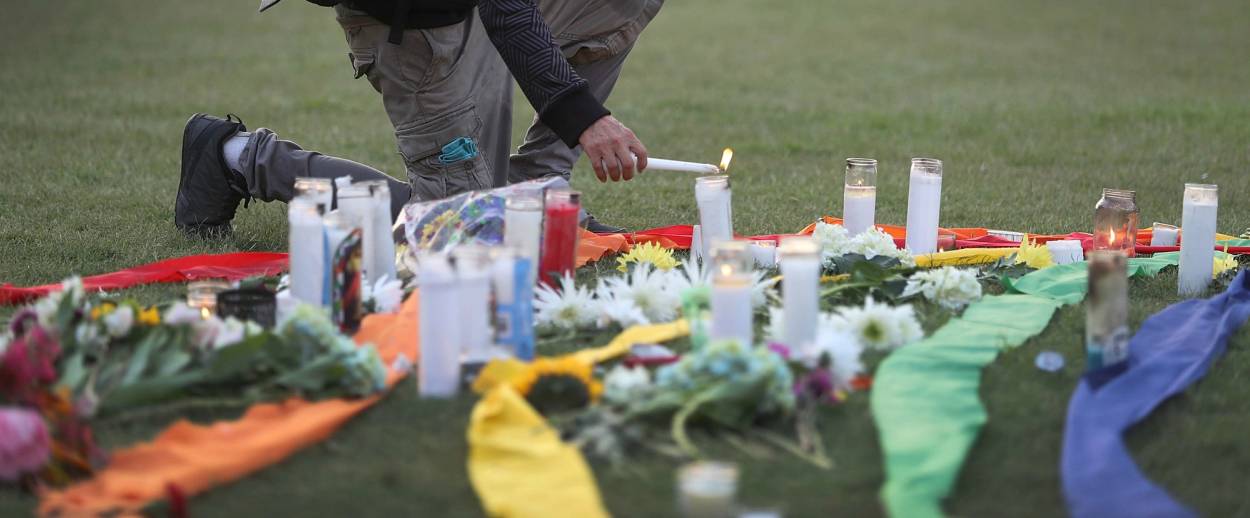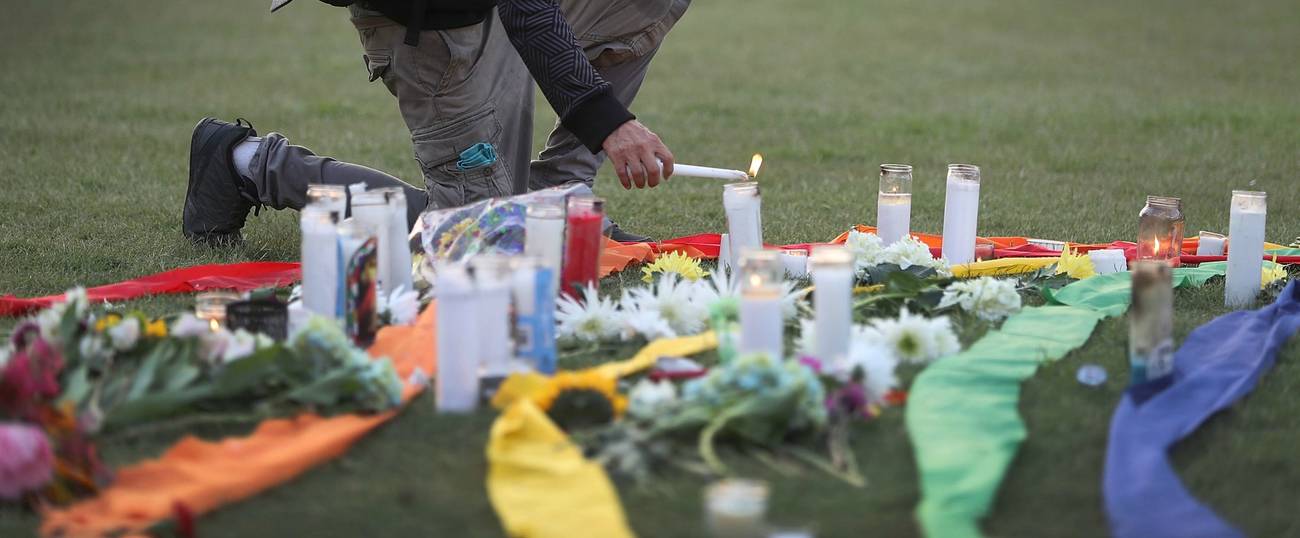The Orlando Massacre Should Not Be Universalized
By lumping the tragedy of victims of the Pulse night club shooting into a universal narrative of the struggle against radical Islam, we negate the suffering of the LGBT community




It began with thoughts and prayers. It always does. Donald Trump tweeted, “Praying for all the victims & their families.” Paul Ryan said, “It is horrifying to see so many innocent lives cut short by such cowardice.” Mitch McConnell said, “The nation’s prayers are with the victims and their families in the wake of this terrible tragedy.” Ted Cruz wrote, “Our hearts go out to those killed and wounded last night. Our prayers are with their families, and with all their grieving loved ones.”
These statements, though sincere, were downright vague: Who, exactly, were the victims? As details emerged about Orlando, the American right would not specify which innocent lives had been lost. The tragedy quickly became one chapter within a larger narrative: the struggle against Islamist extremism, a collective enemy. “From 9/11 to the Boston Marathon, from Fort Hood to Chattanooga, from San Bernardino to last night’s horrific attack in Orlando, radical Islamic terrorism has declared jihad on America,” Cruz said. The massacre in Orlando became nationalized and universalized thereby subsuming another narrative: the murder of gay men and women.
Republicans were not the only ones guilty of this. In an appalling column, Frank Bruni wrote, “This was no more an attack just on L.G.B.T. people than the bloodshed at the offices of Charlie Hebdo in Paris was an attack solely on satirists.” Speaking to the LGBT community, Bruni added astonishingly, “This isn’t a moment for identity politics, which could muddle the significance of the carnage.” Less ACT UP, more shut up; it’s erasure all the same.

Appeals to universality in these situations are natural and understandable. Indeed, they are necessary to the extent that nations and communities, as well as marginalized groups, depend upon solidarity and brotherhood to survive. But they are also easy and can appear rather obvious and trite. Yes, Omar Mateen claimed to have Islamist motives, but his brutality was also a savage terrorist attack on LGBT Americans at an LGBT venue allegedly motivated by hatred of LGBT people. This was an American tragedy—but specifically it was a gay tragedy, and when that is lost and gay suffering negated, made mute, those who died in pools of blood on that nightclub floor end up silenced all over again.
Orlando is by no means the only example of the specificity of a tragedy becoming de-emphasized for universalistic reasons. The January 2015 assault on the offices of Charlie Hebdo in Paris was accompanied by the slaughter of four Jews shopping in a kosher supermarket near the Porte de Vincennes. At the time, these dual aggressions were seen as attacks on cosmopolitanism, with France collectively grieving and marching in the name of the rights to life, free expression, and one’s conscience. Lost was the evident anti-Semitic motive: that the victims were targeted not because of what they represented, but who they were.
The erasure of a particular Jewish suffering has, to a certain extent, also happened with the Holocaust. I have previously written about the importance of remembering (in this case) the gay victims of the camps, and the Holocaust is illustrative of the horrors man can inflict upon man. Still, it is absolutely a catastrophe with an essential Judaic centrality. Deborah Lipstadt rightly notes in her book on the Eichmann trial that “killing all Jews was the priority in the race war that Nazi Germany conducted”; that Jews were the only group targeted for “complete annihilation.” Nazi policy towards Jews was unique, and attempts to broaden the Holocaust by Simon Wiesenthal among others, writes Lipstadt “obscures, if not denies, the true nature of the Holocaust.”
The United States today, as Leon Wieseltier once noted, is a country of minorities and hyphenates where “you are rewarded for difference. Difference is expected. It’s not a social problem, it’s not an obstacle to integration—it’s a social norm.” There is no contradistinction between nationality and ethnicity or religion or sexuality, for everyone in America is one thing but also another. It is this, really, which makes the tendency by the right to negate gay suffering in Orlando, with banality overriding specificity, all the more egregious. It is the denial of otherness for the sake of the whole, when America is but a collection of others.
Liam Hoare is a freelance writer based in Vienna, where he is the Europe Editor for Moment and a frequent contributor to Tablet.